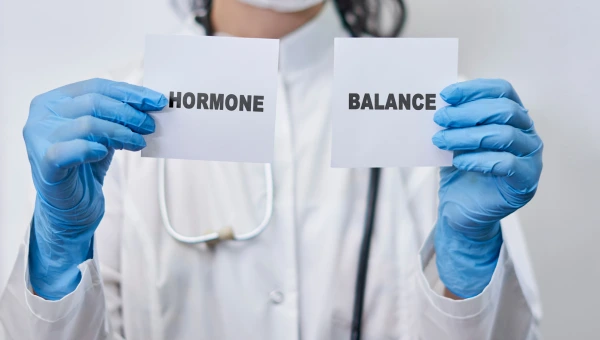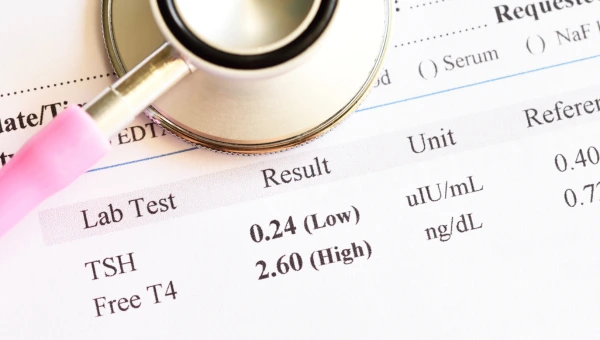How to Balance Hormones for Weight Loss
Struggling to lose weight? It might not just be about diet and exercise. Hormones like leptin, ghrelin, insulin, and cortisol affect how we eat and store fat. When these hormones are off, losing weight can be tough.
Hormonal imbalances are common in people over 40 and women in menopause. But they can happen to anyone. Signs include weight changes, mood swings, and low energy. Understanding hormones can help you lose weight.
To balance hormones for weight loss, eat well and stay active. Manage stress and get enough sleep. These changes help your body control hunger and burn fat better.
Key Takeaways
- Hormones like leptin, ghrelin, insulin, and cortisol play a crucial role in weight management and can make it difficult to lose weight when imbalanced.
- Hormone imbalances can affect anyone at any age but are more common in individuals over 40 and women entering menopause.
- Symptoms of hormonal imbalances include unexplained weight changes, appetite fluctuations, muscle weakness, fatigue, mood swings, and low libido.
- Balancing hormones for weight loss involves a holistic approach that includes a nutrient-dense diet, regular physical activity, stress management, and quality sleep.
- By making lifestyle changes that support hormonal balance, you can improve your body’s ability to regulate appetite, boost metabolism, and promote healthy fat loss.
Understanding the Role of Hormones in Weight Management
Hormones control many body functions like metabolism and appetite. Knowing how they work helps you make better diet choices. This supports healthy weight loss.

Insulin and Blood Sugar Regulation
Insulin helps control blood sugar. It’s made by the pancreas. When you eat carbs, your body turns them into glucose.
Insulin then helps cells use this glucose for energy. But, if cells resist insulin, glucose stays in the blood. This can make it hard to lose weight.
Leptin and Ghrelin: Appetite Regulators
Leptin and ghrelin control hunger. Leptin tells your brain you’re full. But, if you’re leptin resistant, you might always feel hungry.
Ghrelin makes you want to eat more. Too much ghrelin can lead to eating too much and gaining weight.
| Hormone | Function | Impact on Weight |
| Leptin | Reduces hunger, increases energy expenditure | Leptin resistance can lead to increased hunger and weight gain |
| Ghrelin | Stimulates appetite, increases food intake | Elevated ghrelin levels can lead to overeating and weight gain |
Thyroid Hormones and Metabolism
Thyroid hormones control metabolism. Low levels can slow down your metabolism. This makes it hard to lose weight.
High levels can speed up metabolism. This might help you lose weight too fast.
Understanding these hormones helps you manage your weight. Eat well, exercise, and get enough sleep. Talk to a doctor if you think hormones are affecting your weight.

Common Hormonal Imbalances That Hinder Weight Loss
Many hormonal imbalances can make losing weight hard, even with good diet and exercise. Knowing how these imbalances affect us can help fix the problems. This way, we can reach our weight loss goals.
Insulin Resistance and Weight Gain
Insulin resistance happens when our cells don’t respond well to insulin. This hormone helps control blood sugar. When we have insulin resistance, our body makes more insulin. This leads to more fat, especially around the belly.
This extra fat makes it hard to lose weight and can cause weight gain.
Estrogen Dominance and Fat Distribution
Estrogen dominance is when estrogen levels are too high compared to progesterone. This imbalance causes more fat to be stored, especially in the hips, thighs, and buttocks. It also leads to water retention and bloating.
These symptoms make it tough to lose weight.

Low Testosterone and Muscle Loss
Testosterone is key for keeping muscle and fat balance in both men and women. Low testosterone means less muscle, more fat, and a slower metabolism. With less muscle, our body burns fewer calories, making weight loss harder.
Adrenal Fatigue and Cortisol Imbalances
Adrenal fatigue happens when our adrenal glands work too hard due to stress. This stress affects cortisol levels. Cortisol helps control metabolism and fat storage.
Too much cortisol leads to more belly fat, cravings for unhealthy foods, and trouble losing weight.
| Hormonal Imbalance | Effects on Weight |
| Insulin Resistance | Increased fat storage, especially in the abdominal area |
| Estrogen Dominance | Increased fat storage in hips, thighs, and buttocks; water retention and bloating |
| Low Testosterone | Decreased muscle mass, increased fat accumulation, slower metabolism |
| Adrenal Fatigue and Cortisol Imbalances | Increased abdominal fat deposition, cravings for high-calorie foods |
By tackling these hormonal imbalances, we can help our weight loss efforts. This improves our health and well-being.
Lifestyle Changes to Support Hormonal Balance
Making lifestyle changes can help balance hormones and aid in weight loss. A holistic approach that includes diet, exercise, stress management, and sleep quality is key. This way, you can support your hormones and overall health.

Eating a Balanced, Nutrient-Dense Diet
Eating whole foods is vital for hormone balance. Choose fruits, veggies, whole grains, lean proteins, and healthy fats. These foods help your body make and control hormones.
For those with PCOS, what you eat matters a lot. Eating often keeps energy up and prevents overeating. Mix complex carbs, lean proteins, and healthy fats in your meals and snacks. Omega-3s in fish, flaxseeds, and walnuts help with inflammation and insulin resistance.
Incorporating Regular Physical Activity
Regular exercise is great for hormone balance and weight loss. It helps control insulin, boosts testosterone, and lowers stress hormones. Mix cardio and strength training for the best results.
| Exercise Type | Benefits for Hormone Balance |
| Cardio (e.g., walking, jogging, cycling) | Improves insulin sensitivity, reduces inflammation, and promotes weight loss |
| Strength Training (e.g., weightlifting, resistance exercises) | Increases muscle mass, boosts metabolism, and supports healthy testosterone levels |
| Yoga and Pilates | Reduces stress, lowers cortisol levels, and improves overall hormone balance |
Managing Stress Levels
Too much stress can harm hormone balance and lead to weight gain. Try meditation, deep breathing, or hobbies to lower stress. Self-care and setting boundaries also help manage stress and support hormone health.

Prioritizing Quality Sleep
Quality sleep is key for hormone balance. Lack of sleep messes with hormones like leptin and ghrelin. Aim for 7-9 hours of sleep each night. Keep your bedroom dark, quiet, and cool. A consistent sleep schedule and avoiding screens before bed also help.
Hormones for Weight Loss: Targeted Approaches
Some people have trouble losing weight, even when they try hard. Hormone replacement therapy (HRT) might help. It can fix hormonal imbalances that affect how we eat and burn calories. Let’s look at some key hormones for weight management:
- Testosterone Replacement Therapy: Men with low testosterone may gain fat and lose muscle. This therapy can boost testosterone, helping to lose fat and gain muscle.
- Estrogen Replacement Therapy: Women often gain weight during menopause due to low estrogen. This therapy can balance hormones, easing symptoms and helping with weight loss.
- Thyroid Hormone Replacement: A slow thyroid can make it hard to lose weight. Replacing thyroid hormones can speed up metabolism and aid in weight loss.
- Growth Hormone Therapy: Low growth hormone can lead to more fat and less muscle. This therapy can improve body shape and help lose fat.
There are also medicines and supplements that can help with weight loss by affecting hormones:
| Medication/Supplement | Mechanism of Action |
| Semaglutide (Wegovy, Ozempic) | Acts like GLP-1 to control hunger and blood sugar, leading to less eating and better blood sugar. |
| Tirzepatide (Mounjaro) | Works like GLP-1 and GIP to lose weight and improve blood sugar. |
| Human Chorionic Gonadotropin (HCG) | Helps keep muscle while losing fat on very low-calorie diets. |
| Herbal Supplements (e.g., green tea extract, garcinia cambogia) | Some herbs may help with weight loss by affecting metabolism and fat storage. |
Always talk to a doctor, like an endocrinologist, before starting any hormone therapy. They can check your hormone levels and create a safe plan for you. This will help you reach your weight loss goals safely.

Conclusion
Balancing hormones is key for lasting weight loss. Understanding how hormones like insulin and cortisol work is important. This helps you move forward in your weight loss journey.
It’s crucial to find and fix hormonal problems like insulin resistance. This helps you get past weight loss hurdles. A balanced diet and regular exercise also help keep hormones in check.
Stress management and good sleep are also vital. They help your body stay healthy and support weight loss. If you need more help, a hormone specialist can guide you.
If hormones are blocking your weight loss, see a healthcare expert. A hormone specialist can help figure out what’s wrong. They’ll create a plan just for you to fix hormone issues.
With the right help and strategies, you can balance your hormones. This leads to better health and helps you reach your weight loss goals.
Source Links
- Optimize & Balance Hormones for Sustainable Weight Loss – Relive – https://relivehealth.com/weight-loss/weight-loss-balancing-hormones-for-sustainable-results/
- Hormones and Weight Loss: How to Optimize and Balance Your Hormones – Unlocking Insights – Explore Our Articles – https://www.insidetracker.com/a/articles/hormones-and-weight-loss-how-to-optimize-and-balance-your-hormones
- How to Balance Hormones for Weight Loss – NP2GO – https://thenp2go.com/how-to-balance-hormones-for-weight-loss/
- The Impact of Hormone Imbalance on Weight Management Alpha Hormones – https://alphahormones.com/hormones-and-weight-loss/hormones-and-weight-loss/
- The Role of Hormones in Weight Management – https://emccochin.com/the-role-of-hormones-in-weight-management
- Caritas- Hospital & Institute of Health Sciences – https://www.caritashospital.org/article/the-role-of-hormones-in-weight-management
- Hormonal imbalance: Symptoms, causes, and treatment – https://www.medicalnewstoday.com/articles/321486
- 7 signs of a hormonal imbalance — and what to do about it – https://www.uclahealth.org/news/article/7-signs-hormonal-imbalance-and-what-do-about-it
- 3 Nutrition Tips for Balancing Hormones with PCOS – https://bastyr.edu/about/news/3-nutrition-tips-balancing-hormones-pcos
- Obesity, Dietary Patterns, and Hormonal Balance Modulation: Gender-Specific Impacts – https://www.ncbi.nlm.nih.gov/pmc/articles/PMC11174431/
- Hormones & Weight Loss – Fred Bloem, MD – https://drbloem.com/hormones-weight-loss/
- Ghrelin: The ‘Hunger Hormone’ Explained – https://www.healthline.com/nutrition/ghrelin
- Pharmacologic Treatment of Overweight and Obesity in Adults – Endotext – https://www.ncbi.nlm.nih.gov/books/NBK279038/
- Hormone Testing for Weight Loss: – Hamilton Wellness Center – https://hamiltonwellness.org/how-to-check-hormone-levels-for-weight-loss/

